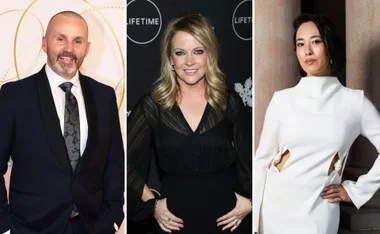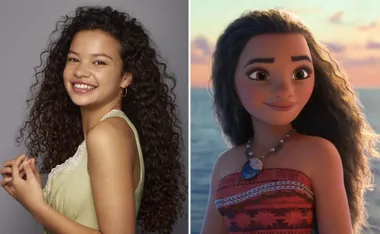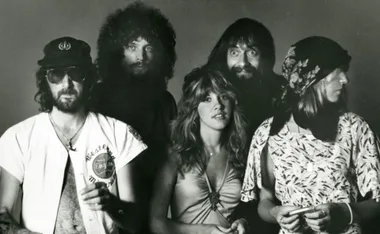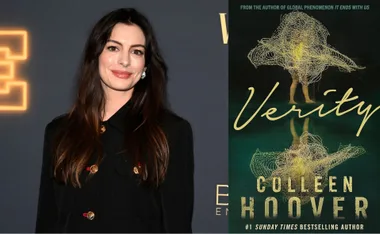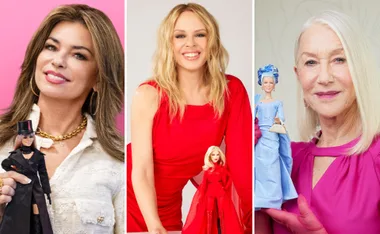Joy Dettman, author of Henry’s Daughter (Pan Macmillan) the Great Read in the July issue of The Australian Women’s Weekly. Part family saga, part darkly funny fairy-tale that has everything – tragedy, a gorgeous, dusty Australian country town setting, audaciousness, power, life, secrets, heart and one of fiction’s most wicked mothers, although by the end, you understand and forgive her. A magnificent accomplishment by a very gifted Australian writer, whose previous books include Mallawindy and Jacaranda Blue.
**Q I haven’t read any of your other books, but you seem drawn to family dramas set in the country?
A** I have four children and until 1998, when required to state my occupation I normally wrote wife and mother – so that’s my experience. And obviously I draw from families. Although mine wasn’t quite as sad as Henry’s.
**Q Henry’s is an outrageously dysfunctional family isn’t it?
A** Yes I really let my head go there. It’s the greatest fun I’ve had writing a book and I really enjoyed writing this one.
**Q Even though Mavis is a shocking mother, she somehow doesn’t depress you?
A** She evolved and became as bad as I required her to be and perhaps I pulled back from letting her go a bit over the top. I start off with an idea and the characters evolve from there.
**Q Was it the idea of a flawed mother that you started with?
A** It began with the children I think and we required a particular type of father so I decided to strike him out of balance with Mavis. I find the characters, put a bit of thought about what they’re going to be like before I begin, and so I have an idea of them in my head before I put them on paper and I know where they’re going. I always know where I’m heading so it’s just a case of letting them run amok until I get there.
**Q The story’s told through the eyes of Lori an adolescent who looks after the family when everything goes wrong – do you think this often happens in real life?
A** I definitely do, I think that a lot of children with dysfunctional parents can and do step in and fill that void.
**Q I loved the twins in the book – do you have any in your family?
A** No, but I lean towards twins, they’ve always intrigued me, especially identical twins. I knew a pair at school and it amazed me, I could never tell them apart. I became a little obsessed with them, I think.
**Q Do twins feature in any of your other books?
A** Yes, in Mallawindy.
**Q I’ve read that a creative writing course you did turned things around for you?
A** Oh, this creative writing course has been blown out of all proportion. What really happened is this: My husband and I inherited his family’s home in Echuca. And we decided we’d go up there for 12 months and renovate the old place before selling it so we commuted for that year. While I was up there I found all these old newspapers underneath the lino of the laundry. It took me back years and years and I remembered bits and pieces I’d read in them. Mallawindy came out of that. I wrote it very, very quickly. The very rough first draft took me about seven weeks. I was a closet writer and my younger sister was the only one who’d always read what I wrote. She read Mallawindy and was very positive about it. ‘Write it again,’ she said. But nothing I’d ever done had had a second draft. Anyhow, we returned to Echuca and fate stepped in. There was a writers workshop on so I decided I’d go along and I read some of my work for the very first time to strangers. That’s about the only impact that creative writing course had on my life. It clawed me out of the closet. O got a very good response so I thought I’d do a second draft and I did a third and I probably did a sixth too. It w as written initially in 1989 and it took 10 years until 1998 before it was published.
**Q So it became an obsession?
A** Yes, a huge obsession.
**Q Did the murder mystery of Mallawindy come from a case you read in the old newspapers?
A** There were probably lots of murders – they were the stories I concentrated on. There always seems to be a child in my writing. I don’t know why. Spent too much time with kids perhaps.
**Q You grew up and were born in Echuca?
A** Yes it’s a very go-ahead place these days. Every time I go there, there’s some new building going on. Spent half my childhood swimming back and across that river (Murray).
**Q The town in Henry’s Daughter is a river town, so there are echoes of Echuca?
A** All my towns are fictional but obviously rivers have played a huge part in my life. I suppose I visualise the Murray, I don’t know.
**Q What was your childhood like there.
A** Very average. I’m one of seven so I come from a big family and lived in a couple of country towns when I was a child. Dad was a bit of a Jack of all trades, he tried everything, I remember(laughing) he was burning charcoal and he had God knows how many of these great kilns making charcoal for some company in Melbourne. He’d come home(laughing) black. My Mum was just a typical Mum for those days – stayed at home. She was always there when we came home from school and was a great pastry and cake cook. But she used to make the most tasteless gravy I ever had(laughing)!
**Q And you had a fun childhood?
A** When you‘ve got that many brothers and sisters you run pretty much wild. We had about 5 acres out of town. And walked to school each day. But we had total freedom, only came home to eat and sleep. We chased butterflies and went yabbying.
**Q Sounds idyllic.
A** When you look back on it, yes, it’s a freedom that kids can’t possibly know these days. Dad was just a working man, so we weren’t rich and I wore my hand-me-downs from my two big sisters and rarely got a new dress. But it was a good life.
**Q Where did you come in the family.
A** I’m the middle man. I often used to describe it as the middle position in the family because you’re never big enough to be of much use in the kitchen and you’re too big to be under foot. I headed very early for fiction. I lived in books.
**Q So that was a start of your love of reading and writing?
A** I wrote my first collection of fairytales when I was around about 10 years old for my little sister. She moved into my bedroom when she was about 3 years old and every night she wanted the passage light left on and I wanted it turned off. If I crept out and put it off, even if she was asleep, she would wake up and scream. So I’d cop a bellow from across the passage. I began to bribe her. ‘You let me turn the light out and I’ll tell you a story.’ She became selective and an insomniac. They were the seeds of it all and that’s why she’s read absolutely everything I’ve ever written.
**Q So your sister is the first person to read your manuscripts?
A** Yes she’s very honest. I dedicated my first novel to Cheryl. She LOVED Henry’s Daughter. She and my daughters now are my early readers. And they all loved it, I felt quite good about it.
**Q It’s a very moving story, disturbing in parts but there’s a tremendous spirit that runs through it?
A** Yes, it’s not what you’d call a black tale even though some of the happenings in it are extremely dark. I think the children treat things rather lightly or give the impression they do.
**Q Would you call it a family saga?
A** I told my sister I was writing my black comedy – it’s certainly not a comedy but I’ve attempted to add a little bit of darker humorous lines along the way.
**Q You have four children – can I have their names and ages?
A** I’m not giving their ages.
**Q And I have to ask about your age as well?
A** You’re not going to get it out of me. Sorry. I’m old enough to have four children in their thirties. I met Don when I was 17 and married him when I was 19. My first daughter was born before my 21st birthday. I was 25 when I had my third and we adopted our boy because two of our children were born deaf, and we had moved to Melbourne by then from the country and we wanted a son, so we adopted our Ross. So there’s Donna, Shani, Karli and Ross.
**Q Are you a grandmother yet?
A** I have five and three quarters. My first two daughters have two each and my youngest daughter is expecting her second in late May.
**Q You’ve not had it easy as a parent with two children born deaf?
A** No, I suppose there’s a decade in my life I look back on and it’s a blur. I don’t look back on it very often and they’ve both done extremely well and they’re both oral.
**Q That means that you and your husband helped them realise their potential and saw to it that they had opportunities?
A** We attempted to teach them that there was nothing in the world they couldn’t do.
**Q Were doctors ever able to explain why it happened?
A** They were never able to give us an answer only that it must be genetic and the fact that we had two, meant we had to assume somewhere in the distant past there must have been deafness in the family. But we really have no idea. Q You married young, what were you doing at 17 when you met your husband?
A Selling men’s clothing in a big emporium in Echuca called Carters. It’s still there I think, one of the sons runs the place.
**Q What does your husband Don, do for a living?
A** Don has retired, before that he was with the RACV for 20 years on the technical side. He’s very helpful when I’m writing about cars.
**Q Describe your home office?
A** I have a narrow pathway leading to my computer through this incredible chaos and I dare not clean it up and toss anything out because I invariably toss out something that I am going to look for later. Till it turns yellow and starts to curl at the toes. It’s a black hole – I don’t ever open up the blinds in there because the light shines on my computer and I like dark holes.
**Q As well as all those years working as a mother and wife, did you take on other jobs?
A** I’ve done a couple of part-time jobs and when my youngest, my son, finally went off to school I worked as a receptionist for a time and I went back to my old trade selling fabrics at Lincraft. That was for about five years. Q You’re a full time writer now?
A Yes, have been for about five years. I was always writing constantly but making little cash out of it. Had quite a few short stories published. And I had a couple of plays performed prior to ’98. Won quite a few writing competitions but it wasn’t until 1998 that I was able to say that writing was my full time occupation. Since then I’ve attempted to churn out a book every year. Which one of these days I’m going to have to stop doing or else my neck will give way.
**Q It must have been a huge thrill to get that first book published after waiting ten years?
A** It was unbelievable to hold that first published book in my hand – indescribable.I remember receiving the box of free copies, ripping it open , breaking my nails as I ripped it, then being hardly brave enough to touch one. It had been such a long battle and many, many times I had just about given up on it. ’Stop wasting your time, go out and get a paying job,’ I’d say to myself. The greatest highlight was the day I ran into the local K-Mart and I saw one of my books picked up from the pile and I stood there mesmerised – what was she going to do? And then she walked off to the cash register. Oh my God, the end result of my labour.
**Q Would your parents be surprised to know they have a published author in the family?
A** No, I wish my Mum was alive because she would be just SO over the moon. She was a reader too and I imagine she would have been very proud. My Dad, is still alive but I recall when I gave him a copy and I think he looked at all the bad language in it and he said, ‘why can’ you write something decent?” (laughing). But he was very proud and has said so since. Until I had my first story published, I don’t think Don really took it seriously. I think he thought ‘give her enough time to get this writing bug out of her system.’ (laughing). But I suppose when the kids started growing up I was still young enough to do something…to do what I’d wanted to do with my life rather than just raising kids. I put my whole self into it and refused to give up.
**Q What year it was when you had your first story published?
A** 1993. It was an anthology published in New Zealand by Random House. I had heard about them looking for stories on food. I had pretty much given up on having Mallawindy published by that stage. So I chopped it up for short stories. And I whipped out this chapter about Malcolm Fletcher, who’s this big guy who loves his food, cut it a bit, posted it and they replied they’d like to publish it and they actually PAID me for it.
**Q What led to your breakthrough with Mallawindy?
A** I tried on three occasions to secure the services of an agent but they were not interested until I had the publisher’s contract in my hand. And so I decided okay, after I’d won a certain amount of competitions and had a certain amount published, I compiled a resume and wrote to four of the biggest publishing houses in Australia, including a thumb-nail synopsis of Mallawindy and Jacaranda Blue, which was then a work in progress and I heard back from Random House about a week later. Six weeks later I heard from Pan Macmillan. So those two novels more or less toddled between the two publishers for around about 12 months while I continued to work on them. Finally Macmillan rang me to say they wanted my book.
**Q Did you celebrate?
A** I’d been out with my daughter and granddaughter – I saw this yellowed envelope hanging out of my letterbox and it was an express paid envelope and I knew in my heart what it was and I remember grabbing my daughter and grand-daughter and dancing up and down the driveway (laughing). Then I went out and had the letter laminated and stuck it on the office wall. It’s still there.
**Q Your story says never give up, doesn’t it?
A** It does if you want something and you hang out for it for long enough – and continue to learn along the way. Don’t settle for what you wrote 10 years ago and say that’s good enough – you have to keep on improving. The first novel is an apprenticeship and you must treat it as such. It’s a learning curve. We learn so much from that first novel. Mallawindy was originally almost twice the size it ended up. I just kept cutting. I suppose I learned from that chapter I sent to New Zealand. Because I had to cut it severely. I had several chapters of the book published as stories and I thought, ‘yes, well, people seem to like the chapters, why don’t publishers like the book?’ It told me that it was over-written and that’s when I began to cut it back to basics.
**Q And that’s when the book emerged?
A** Yes, that’s true, in attempting to impress the Gods of the literary world, rather than write my novel, the story had become a little blurred.
**Q Do you write every day?
A** I write when I feel the urge. I get an idea and it starts to boil and bubble in my head, for months perhaps, before I sit at the computer and then I almost cripple myself writing ridiculous hours every day. I call It a house and I’m taking it to lock-up stage. There’s very little inside, but it’s there and it’s safe and I can come back to it when I’m ready. I’ve got a few of those still on file and one of those days when something moves me to it, then the characters will start to come out of the woodwork and I’ll start to flesh it out.
0**Q How many drafts do you do?
A** These days a lot less. I don’t print out the first draft these days until it’s pretty close to what it’s going to end up as. Maybe three all up.
**Q Please complete the following sentence: Joy Dettman loves
A** ….spaghetti bolognese (laughing). Family children, grandchildren of course and my dog, called Footrot (a kelpie/border collie ‘X’).The smartest dog I’ve ever known in my life – and I’ve had a few.

